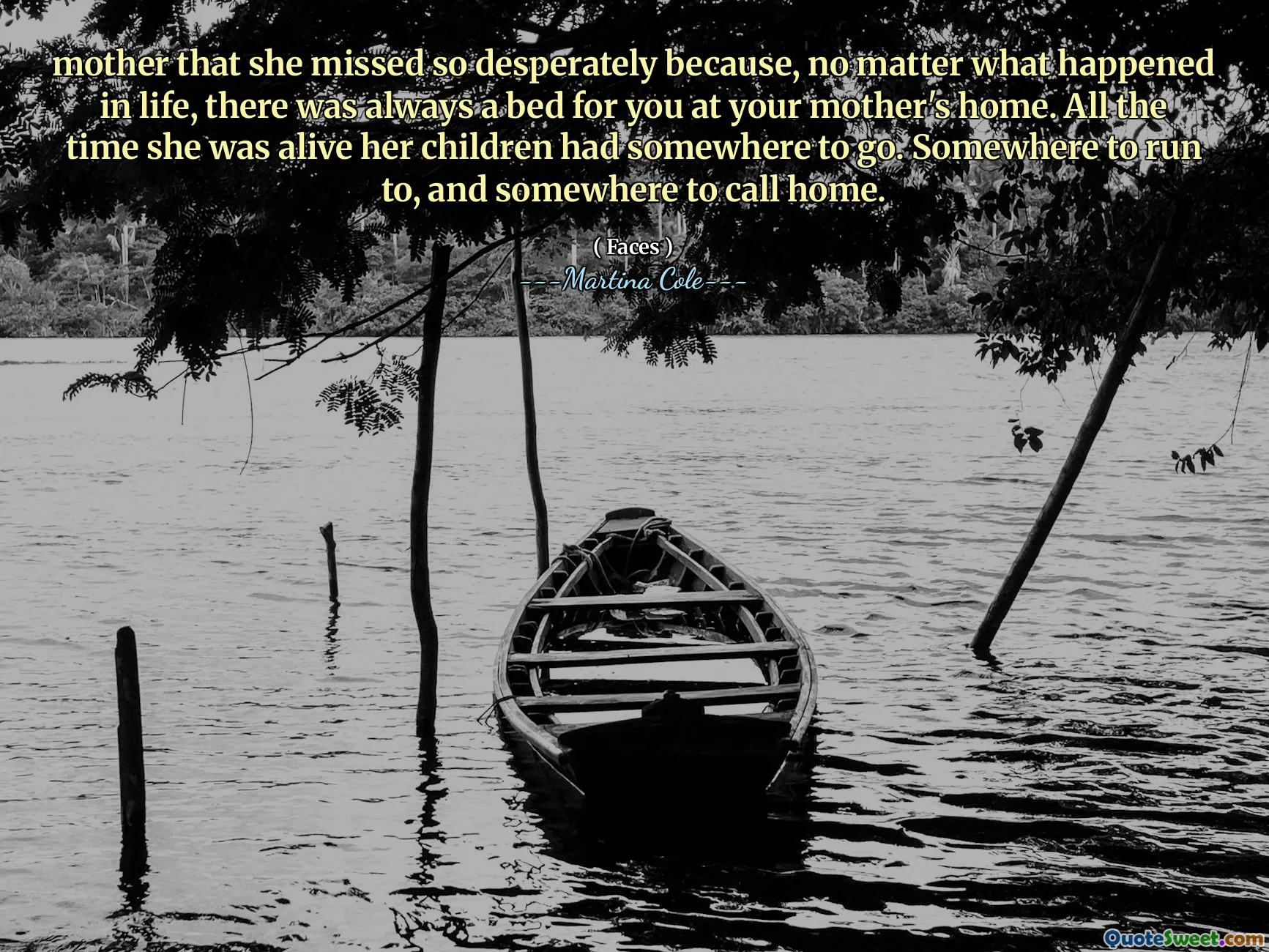
Matka, že jí tak zoufale chyběla, protože bez ohledu na to, co se stalo v životě, byla pro vás vždy v domě vaší matky. Po celou dobu, kdy byla naživu, musely své děti někde jít. Někde běžet a někde zavolat domů.
(mother that she missed so desperately because, no matter what happened in life, there was always a bed for you at your mother's home. All the time she was alive her children had somewhere to go. Somewhere to run to, and somewhere to call home.)
Citace odráží hluboké emocionální spojení mezi matkou a jejími dětmi a zdůrazňuje pocit bezpečnosti a útěchy, které její přítomnost poskytuje. The mother is portrayed as a constant source of refuge, representing stability in the unpredictable nature of life. Her home is depicted as a safe haven, a place where children can always return, regardless of their circumstances.
The passing of the mother leaves a profound void in her children's lives, highlighting the importance of having a nurturing figure. Vzpomínky na její lásku a ujištění, že bude mít místo, na které by mohl zavolat domů, a připomínají jim bezpodmínečnou podporu, kterou kdysi měli. Tento sentiment rezonuje s kýmkoli, kdo zažil úzký vztah s rodičovskou postavou a ilustruje trvalý dopad matky lásky.











